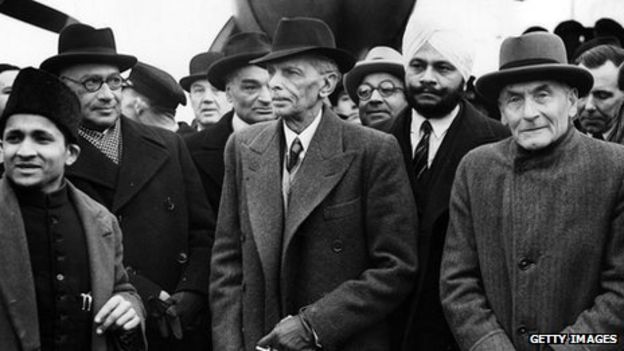Muhammad Ali Jinnah was arguably one of the greatest Muslim leaders of the 20th century. Over the years, however, history books and propaganda efforts by different institutions have changed the vision of the Quaid to pursue our own personal agendas. It’d be interesting to know if Muhammad Ali Jinnah would have faith in the Pakistan of today. Because let’s be real with ourselves for once: We’re not the country Muhammad Ali Jinnah envisioned and the country for which thousands of people lost their lives during partition.
So let’s briefly go over what Quaid-e-Azam said, and what we’re really doing today.
What the Quaid said:
“Along with many other things, good and bad, has arrived this great evil, the evil of nepotism and jobbery. I want to make it quite clear that I shall never tolerate any kind of jobbery, nepotism or any any influence directly of indirectly brought to bear upon me. Whenever I will find that such a practice is in vogue or is continuing anywhere, low or high, I shall certainly not countenance it.”
What we do:
It’s hard to get much done without any safarish!
What the Quaid Said:
“I sincerely hope that relations between India and Pakistan will be friendly and cordial. We have a great deal to do and think that we can be of use to each other and the world.”
What we do:
Our history with India hasn’t exactly been civil. We have fought two full-blown wars, lost hundreds of men in countless conflicts, big or small. The recent breakdown of relations between the two volatile neighbors is yet another cause for concern for the world community (and yes, India too is at fault for this).
What the Quaid said:
“One of the biggest curses from which [we are] suffering – I do not say that other countries are free from it, but, I think our condition is much worse – is bribery and corruption. That really is a poison. We must put that down with an iron hand.”
What we do:
The less said about this the better. Right Mr and Mrs politcian?
What the Quaid said:
“If we want to make this state of Pakistan happy and prosperous, we should wholly and solely concentrate on the well being of the people, and especially of the masses and the poor.”
What we do:
According to Human Development Index, 60.3% of Pakistan’s population lives on under 200 rupees a day. Wealth distribution in Pakistan is highly uneven with the top ten of the population earning 27.6% and bottom 10% earning 4.1 percent of the income.
What the Quaid said:
“We are members of the brotherhood of Islam in which all are equal in rights, dignity and self-respect. Consequently, we have a special and a deep sense of unity. But make no mistake; Pakistan is not a theocracy or anything like it.”
What we do:
We are very quickly turning Pakistan into Al-Bakistan. Legitimizing victimization of anyone who has a different view by not condoning with serious action is a problem that has led us to become paranoid about everything, as a nation.
What the Quaid said:
“We are victims of evil customs. It is a crime against humanity that our women are shut up within the four walls of the houses as prisoners. there is no sanction anywhere for the deplorable condition in which our women have to live.”
What we do:
We treat women as second-class citizens in Pakistan and many are discouraged from working, especially after marriage. Female literacy is at roughly 60% – a literate person is defined as “people who can read and write a short simple statement on their everyday life.” According to the UNDP, Pakistan ranks 120/146 in terms of gender-related index.
What the Quaid Said:
“The tenants of Islam enjoined on ever Musalman to give protection to his neighbors and to the minorities regardless of caste and creed.”
What we do:
Minority communities are treated as if they’re a burden on the country. There are several cases of churches being burned, the word ‘Muslim’ was etched out from Dr. Abdus Salam’s grave, a Hindu temple was burned based on unproven allegations in Sindh – the list goes on, but you get the idea.
To not celebrate the Quaid for who he really was on December 25th is to forget his vision of Pakistan. There is a significant shortage of role models in the country – let’s not forget one of the greatest ones.









